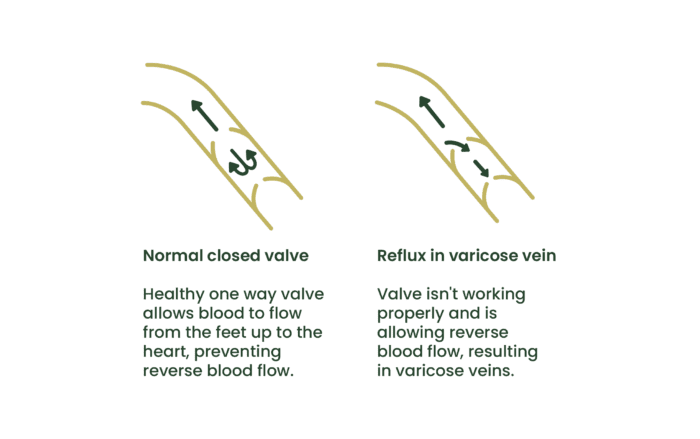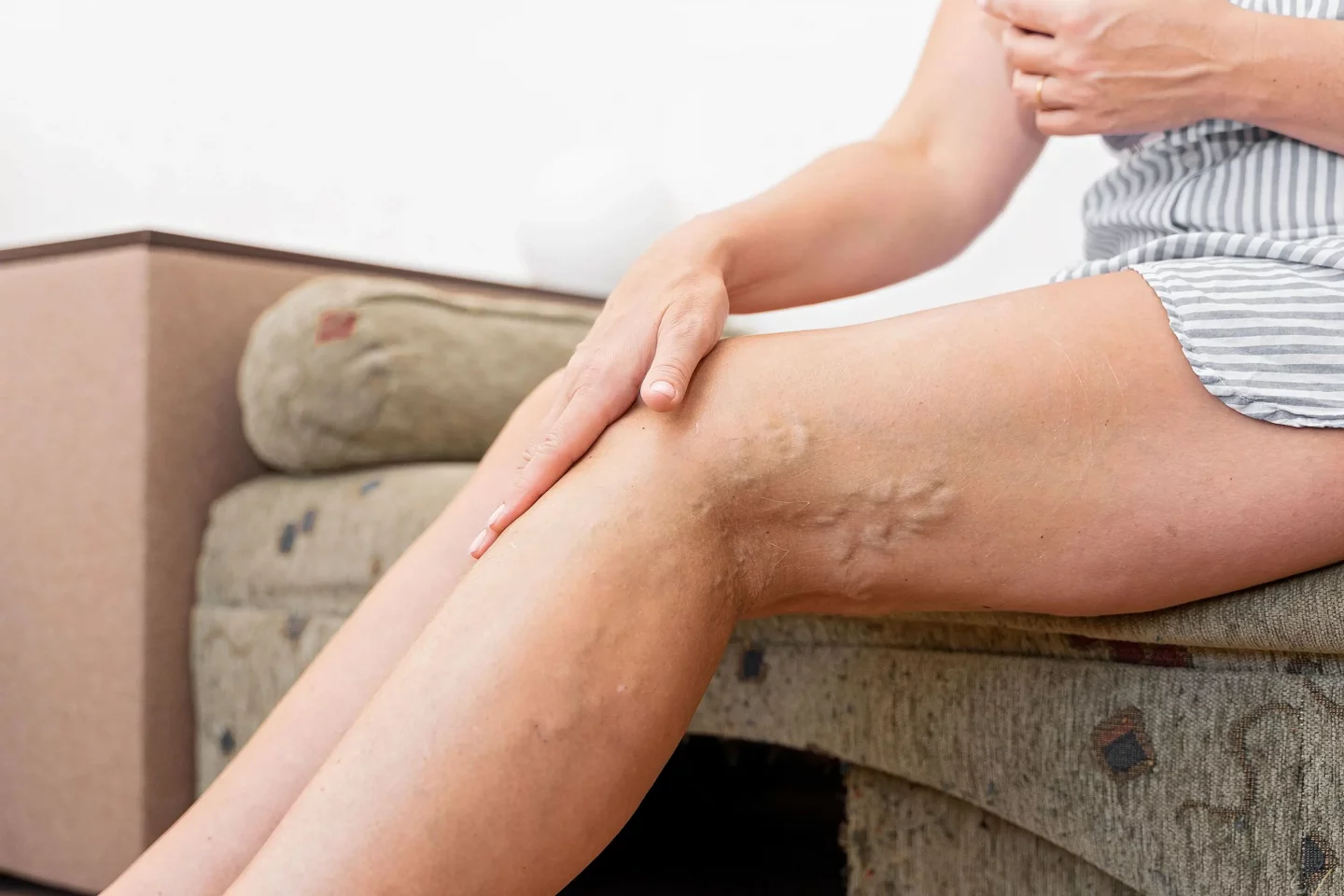Stage 1 – Mild Varicose Veins
In the earliest stage, varicose veins may not be very noticeable. You might see faint blue lines just under the skin that feel slightly raised. At this point, symptoms are usually mild or non-existent, but some people may experience slight heaviness, aching or leg fatigue, especially after standing for long periods. Gentle exercise, wearing compression stockings, and elevating your legs can help improve blood flow and ease discomfort. Walking is especially helpful, as it encourages healthy circulation in the legs.
Stage 2 – Moderate Varicose Veins
Varicose veins occur when tiny valves inside the veins stop working properly. These valves normally help blood flow upward toward the heart, but when they become weak or damaged, blood can pool in the vein, causing it to stretch, twist, and become more visible under the skin.
As valve function worsens, veins become more prominent, twisted and visibly enlarged. You may begin to experience symptoms like:
• Tired or heavy legs
• Mild aching or throbbing
• Cramping, especially at night
• Itching or restlessness
While you may still manage your daily routine, these symptoms can become increasingly noticeable.
At Veincentre, your journey starts with a thorough consultation with your dedicated consultant, where we take the time to understand your symptoms and concerns. As part of this, a colour duplex ultrasound scan will be carried out to assess your varicose veins. If treatment is needed, your consultant may recommend Endovenous Laser Ablation (EVLA) – a minimally invasive, walk-in walk-out procedure that restore healthy blood flow.

Stage 3 – Severe Varicose Veins
In this stage, veins are visibly swollen and bulging. Pressure has built up inside the veins for months or years, causing more significant symptoms, such as:
• Persistent pain or burning
• Swelling, especially around the ankles
• Itchy, discoloured skin
• Varicose eczema (red, irritated patches)
These symptoms can become harder to ignore, and they may begin to affect your comfort or confidence.
We typically treat severe cases using EVLA in combination with other procedures like foam sclerotherapy or avulsions to address visible veins. This tailored approach helps relieve symptoms and improve cosmetic results.
Stage 4 – Chronic Venous Insufficiency
This is the most advanced stage, where symptoms are more widespread. The skin may become significantly discoloured, and varicose eczema can worsen. In some cases, untreated veins may lead to venous ulcers.
Common symptoms include:
• Daily leg pain and heaviness
• Noticeable skin thickening or darkening
• Ongoing swelling
• Venous ulcers (in more severe cases)
While this is the most serious stage, effective treatment is still possible. EVLA remains the first-line approach, often combined with foam sclerotherapy or avulsions. If ulcers have developed, dedicated wound care may be needed to support healing.
We’ve been treating varicose veins for over 20 years and have performed more than 50,000 procedures. Our consultant-led, minimally invasive treatments are designed to relieve symptoms, restore comfort, and improve the appearance of your legs – all with minimal downtime.
Why Choose Veincentre?
• Consultant-led care at every step
• Walk-in, walk-out treatment with no overnight stay
• Over 50,000 successful treatments performed
If you’re struggling with varicose veins at any stage, we’re here to help.
Our patient advisory team are on hand Monday to Friday 8am-5pm and Saturday 9am-4pm and are ready to answer your vein related queries. Contact the team today on 01782 753960 for further advice and support.

